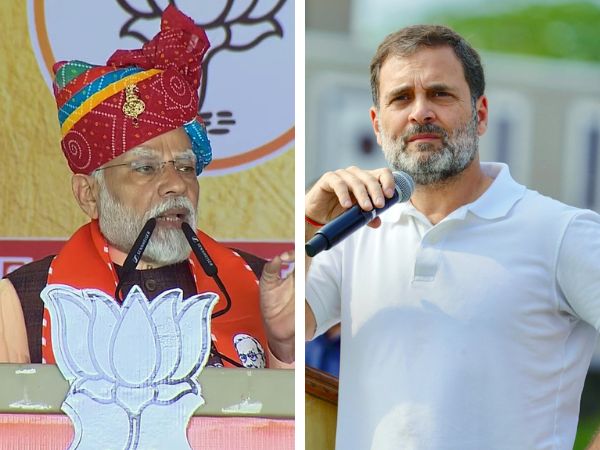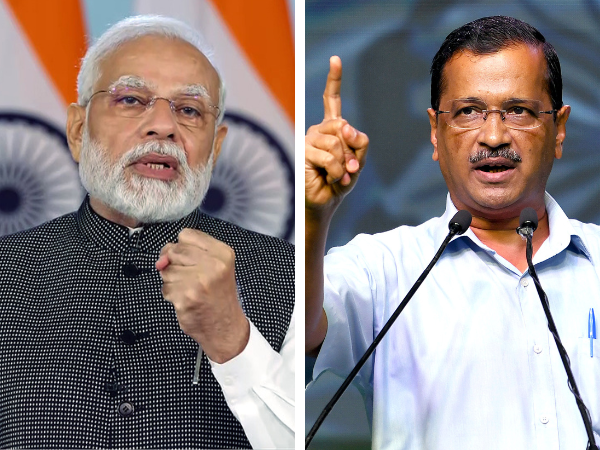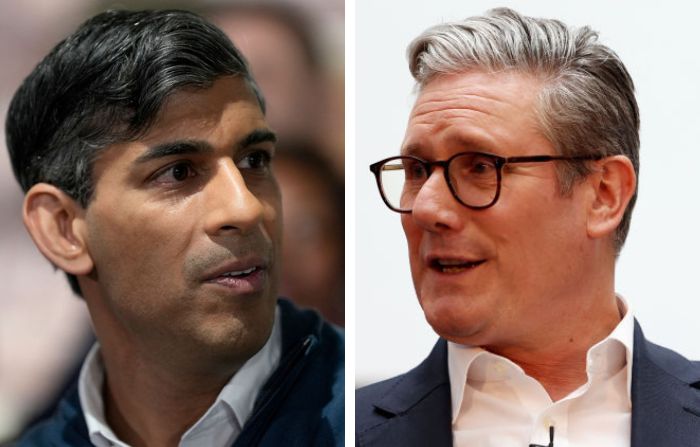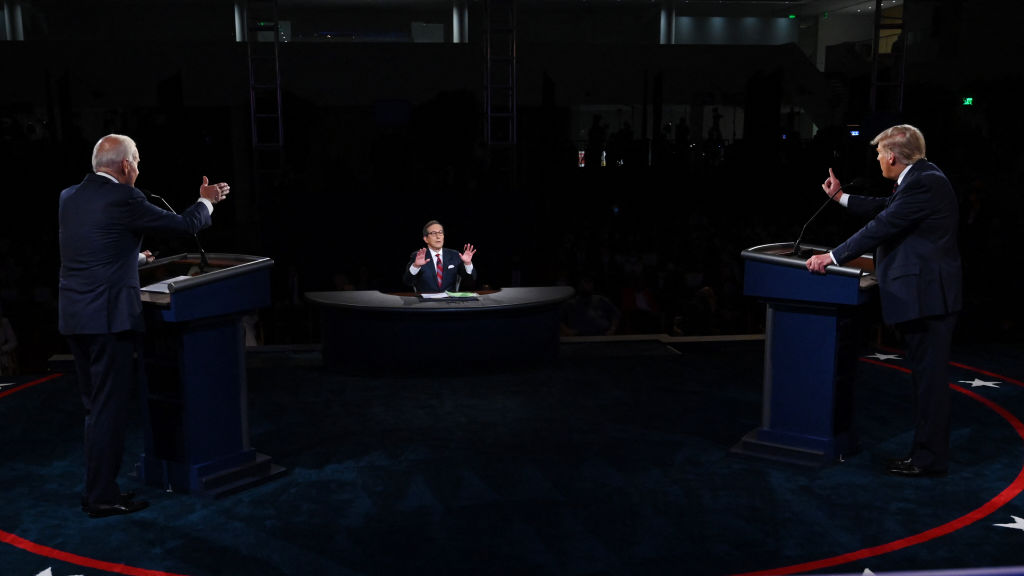- Saturday, July 27, 2024
Despite being the largest democracy in the world, India never sees its top competing leaders engaging in constructive debates in the run-up to the polls.

By: Shubham Ghosh
THE year 2024 is one of elections. Several countries across the globe are going to polls to determine their next set of rulers. Among them are three prominent democracies — India, UK and the US. While India has been holding a marathon election comprising seven phases between April and June, the US will have its on November 5. The UK will also go to a snap election on July 4, after its prime minister Rishi Sunak came up with a surprise announcement about it on May 22.
One common aspect of the elections in the US and UK is their pre-election debates between the top leaders. While in the US, it’s a political tradition to have the leading faces engage in debates, with people from their own parties and then from rival parties, before the most voted face becomes the president, the UK has also been following it for the past decade and half. On June 4, for instance, its incumbent premier Sunak will take on opposition and Labour leader Keir Starmer in a televised debate.
But in India, no such debate takes place. Often, we see politicians in the world’s largest democracy daring their opponents to come for an in-person debate, guaranteeing that they would nail them in no time, the ever-inquisitive viewers or rather voters never get to see something like that in reality. Political leaders ridicule and attack each other, bring allegations of all types and seriousness, but never really arrive on the same stage for a constructive debate.
Read: Sunak, Starmer to face off in election debate on June 4

Why is it that despite being called as the world’s largest democracy which has survived decades of challenges and seen peaceful transitions of power, India doesn’t have a tradition of holding pre-poll debates, often considered a mirror to reflect a democracy’s true essence?
One reason could be the country’s multidimensional parliamentary democracy. Debates are easier to organise in personality-centric political systems such as the presidential ones such as the US. In such a system, the elitist and individualistic pattern makes it easier to hold debates. The two major parties – Democratic and Republican – have their faces who engage in head-to-head debate.
Read: Rahul Gandhi votes, foreign media call him Modi’s ‘struggling rival’

In India, there are no such faces always. There, it is the party that rules the game instead of individuals. True, there have been leaders such as former prime ministers such as Jawaharlal Nehru, Indira Gandhi, Rajiv Gandhi or the incumbent prime minister Narendra Modi whose times saw the Indian parliamentary democracy being dominated by personality cults but there have been little occasions where major faces from competing parties or alliances faced off in an election.
The times of Nehru and Indira Gandhi did not see an equally charismatic leader from the opposition benches while in 2014, when Modi emerged as the prime ministerial face of the then opposition Bharatiya Janata Party, the ruling side did not have an official face leading its campaign, certainly not the then prime minister Manmohan Singh who was left beleaguered at the end of his second term.

The UK also has a parliamentary system and still holds debates between top faces, unlike India. The reason being the two major parties have their leaders in place – Sunak for the ruling and Starmer for the opposition party – much like the American system.
India’s inability to find clear-cut faces is also because of its chaotic politics. The current opposition INDIA – Indian National Developmental Inclusive Alliance – doesn’t have a PM pick unlike Modi in the ruling BJP and its National Democratic Alliance. There could be a serious power struggle within the alliance if one particular leader is pushed as the PM face.
Moreover, the parties within the INDIA do not have a uniform political stance. While some of them have alliances in some parts of the country, they do not in other corners. The pre-election equations could also change after the results come out.
Such a fluid political state of affairs makes it virtually impossible to pick a definite opposition prime ministerial face for a debate.
The alleged lack of media objectivity would also make it challenging to see a successful political debate. The media in India is often accused of bowing before those in control of things. Terms such as ‘Godi Media’ are often used to accuse a fourth pillar favouring the ruler of the day today. With their credibility under question, it is unlikely that many people from the opposition ranks would be eager to join debates, suspecting whether the moderators would be neutral.
Television debates in India have been turned into a matter of joke by belligerent anchors and that also makes the chances of debates between top leaders highly unlikely. The so-called prime time debates have been reduced to nasty displays of mutual abuse and whataboutery. With all parties and their representatives pointing fingers at each other and the moderators turning into a howling ringmaster, televised debates in India at the end of the day are seen as a mockery of public conduct.
It is unthinkable hence that a meaningful election debate among top leaders can take place in an environment of mutual suspicion and hate. Even inside the parliament, several working hours are lost every session because of ruckus and protests and the members’ inability to engage in productive interactions.
The Indian politicians also find it more convenient to attack the opponents while speaking to their own supporters, party members or the media. Social media is also one of their favourite mediums through which they target their political rivals. They seem to be more comfortable in one-way conversation, which doesn’t help build an environment of healthy debate.
But while there is no culture of debate in India’s political discourse today, the country’s ancient history speaks about a completely different reality.
Rajesh Mehta, a leading business consultant and entrepreneur, feels India always had a tradition of healthy debate in the past.
“In ancient India, we had a strong debating culture, particularly in matters of religion. In Jainism, the concept of Anekantavada recognised the nature of reality having many different points of view. Even in Brahminical tradition, we can see healthy debate between Adi Shankaracharya (Vedic scholar) and Mandan Mishra (Hindu philosopher). The Indian tradition of public debate (Vadashastra) had also been there in Vedic times,” he told India Weekly.
Even in independent India, debates in the Constituent Assembly while preparing the country’s lawbook – the Constitution – are still considered the benchmark of parliamentary democracy. Former prime minister Atal Bihari Vajpayee had once said that he used to debate with his predecessor Nehru and the latter had foreseen in him a future prime minister of the country.
Mutual respect in politics is something which is on decline all over. Yet, if Joe Biden and Donald Trump can still agree to share stage despite their acrimonious takes on each other, why can’t Indian politicians do the same?